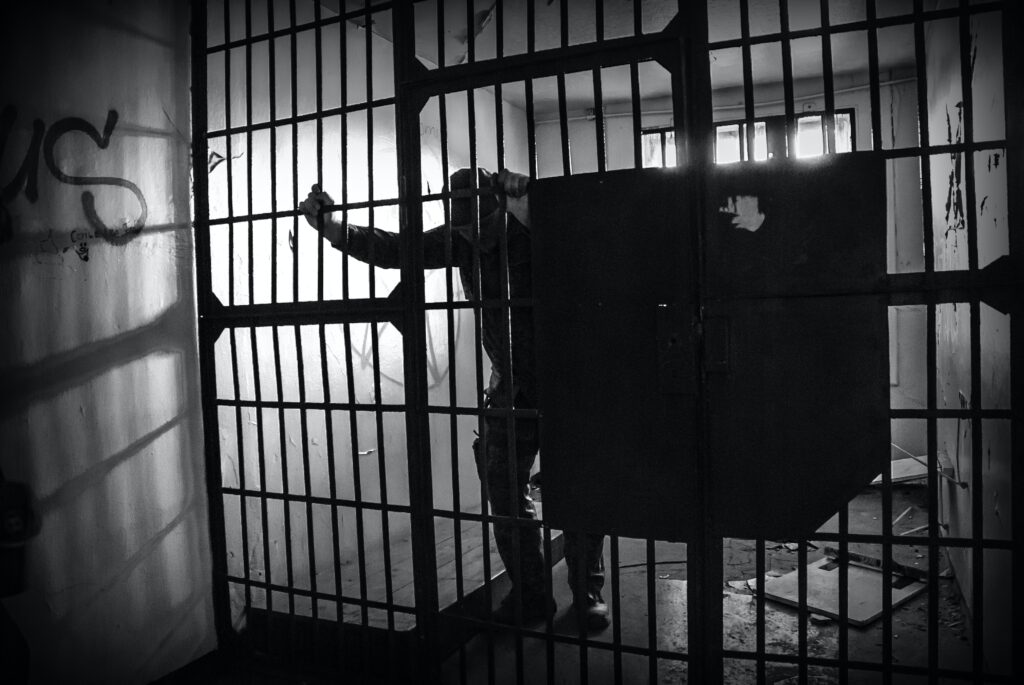Introduction
According to the National Crime Records Bureau (NCRB), 32,033 rape cases were reported in India in 2019, an average of 88 cases per day. However, the actual number of rape cases may be much higher due to underreporting of incidents, particularly in rural areas where reporting sexual violence carries a social stigma.
Rape is a widespread problem in India, affecting people of all ages, genders, and backgrounds. Despite laws and policies aimed at protecting women, sexual violence remains a major issue in the country, with many cases going unreported and unpunished.
The reasons for India’s high rape rate are complex and multifaceted. Patriarchal attitudes that regard women as inferior and subordinate to men contribute to a culture in which sexual violence is normalized. Women are also more vulnerable to sexual assault in rural areas due to poverty, a lack of education, and poor infrastructure.
Several high-profile rape cases in recent years have sparked widespread outrage and calls for change. The gang rape and murder of a young woman on a bus in Delhi in 2012 sparked nationwide protests and the passage of new sexual violence laws which led to the amendments to the Rape Laws.
Also Read: How to get Free Legal Aid ? What is the Provision Under 39A ?
How does Rape is Defined as Crime in Indian Rape Laws?
Rape has been defined under Indian Penal Code of India where Rape has been considered as serious offence against Women liberty.
Definition of Rape
Rape is a type of sexual assault that involves any type of non-consensual sexual penetration. This can include penetration with a body part or an object via vaginal, anal, or oral routes. The absence of consent is a defining feature of rape. Consent is defined as freely and voluntarily agreeing to sexual activity without coercion, threat, or force. Individuals who are unable to give consent, such as minors, people with disabilities, or those who are impaired by drugs or alcohol, are also protected under rape laws.
Rape is defined differently in each jurisdiction under Rape Laws, but the core elements of non-consensual sexual penetration and lack of consent are generally included
What are the Main Features of Rape Laws?
As per Rape Laws, in the Indian Penal Code Rape is defined under Section 375 where the different state has been recognized where the circumstances are defined to bring the act under the ambit of Section 375:-
Section 375 in The Indian Penal Code
375. Rape.—A man is said to commit “rape” who, except in the case hereinafter excepted, has sexual intercourse with a woman under circumstances falling under any of the six following descriptions:—
(First) — Against her will.
(Secondly) —Without her consent.
(Thirdly) — With her consent, when her consent has been obtained by putting her or any person in whom she is interested in fear of death or of hurt.
(Fourthly) —With her consent, when the man knows that he is not her husband, and that her consent is given because she believes that he is another man to whom she is or believes herself to be lawfully married.
(Fifthly) — With her consent, when, at the time of giving such consent, by reason of unsoundness of mind or intoxication or the administration by him personally or through another of any stupefying or unwholesome substance, she is unable to understand the nature and consequences of that to which she gives consent.
(Sixthly) — With or without her consent, when she is under sixteen years of age. Explanation.—Penetration is sufficient to constitute the sexual intercourse necessary to the offence of rape.
What is the Punishment for Rape?

The Punishment for Rape is defined in Indian Penal Code, 1860 Under Section 376 (Rape Laws) where the punishment is defined on different criteria and accordingly the punishment is announced:-
Section 376 in The Indian Penal Code, 1860
1[376. Punishment for rape.—
(1) Whoever, except in the cases provided for by sub-section (2), commits rape shall be punished with imprisonment of either description for a term which shall not be less than seven years but which may be for life or for a term which may extend to ten years and shall also be liable to fine unless the women raped is his own wife and is not under twelve years of age, in which cases….
….he shall be punished with imprisonment of either description for a term which may extend to two years or with fine or with both: Provided that the court may, for adequate and special reasons to be mentioned in the judgment, impose a sentence of imprisonment for a term of less than seven years.
(2) Whoever,—
(a) being a police officer commits rape—
(i) within the limits of the police station to which he is appointed; or
(ii) in the premises of any station house whether or not situated in the police station to which he is appointed; or
(iii) on a woman in his custody or in the custody of a police officer subordinate to him; or
(b) being a public servant, takes advantage of his official position and commits rape on a woman in his custody as such public servant or in the custody of a public servant subordinate to him; or
(c) being on the management or on the staff of a jail, remand home or other place of custody established by or under any law for the time being in force or of a woman’s or children’s institution takes advantage of his official position and commits rape on any inmate of such jail, remand home, place or institution; or
(d) being on the management or on the staff of a hospital, takes advantage of his official position and commits rape on a woman in that hospital; or
(e) commits rape on a woman knowing her to be pregnant; or
(f) commits rape on a woman when she is under twelve years of age; or
(g) commits gang rape, shall be punished with rigorous imprisonment for a term which shall not be less than ten years but which may be for life and shall also be liable to fine: Provided that the Court may, for adequate and special reasons to be mentioned in the judgment, impose a sentence of imprisonment of either description for a term of less than ten years.
What are the Major Incidents on Rape in India?
India has witnessed the barbarian act of human savagery where female were treated to the extent of inhumanity and treated as the object to satisfy the self. India has seen several notable incidents of rape that have sparked widespread outrage and protests, including:
Nirbhaya Case (2012)
On a bus in Delhi, a 23-year-old woman was gang-raped and brutally assaulted. She died as a result of her injuries, sparking protests and calls for action to address sexual violence in India.
Kathua rape case (2018)
In Jammu and Kashmir, an 8-year-old girl was raped and murdered in a temple. When it was discovered that the crime was committed to drive the nomadic Muslim community out of the area, the case gained national attention.
Unnao case (2018)
A politician in Uttar Pradesh raped a 17-year-old girl. The victim attempted to set herself on fire outside the chief minister’s residence to draw attention to her case, which drew national attention.
Hyderabad Gangrape and murder case (2019)
Four men gang-raped and murdered a 26-year-old veterinarian in Hyderabad. The incident sparked widespread outrage and calls for stricter laws and faster justice in cases of sexual assault.
Hathras Gangrape case (2020)
In Hathras, Uttar Pradesh, a 19-year-old Dalit woman was gang-raped and brutalized. She died as a result of her injuries, and the case sparked outrage over how the police and government handled the situation.
Also Read: What is Senior Citizen Law of Rights for Property Protection in India?
The Amendments in Rape Law to Provide the Justice

The law evolves as the need and requirement of the society and accordingly as per the new incidents or Crime noted by the Jurist, amendments are India has made several amendments to its rape laws to address the issue of sexual violence, including:
Criminal Law (Amendment) Act, 2013
Following the Nirbhaya case, this amendment made several changes to the Indian Penal Code (IPC), Criminal Procedure Code (CrPC), and Indian Evidence Act. It made stalking a punishable offence, criminalized voyeurism, and expanded the definition of rape to include non-penetrative sexual assault.
Criminal Law (Amendment) Act, 2018
This amendment established the death penalty for rapes of girls under the age of 12 and raised the minimum sentence for rapes of women from 7 to 10 years.
The Protection of Children from Sexual Offences (POCSO) Act, 2012
This act protects children from sexual offences and defines different types of sexual abuse. It also specifies harsh penalties for sexual offences against children.
The Criminal Law (Amendment) Act, 2019
This amendment made several changes, including the addition of the death penalty for raping girls under the age of 12 and repeat offenders. It also required all police stations to have a female officer and established special courts to hear cases involving sexual offences.
These changes were brought in response to several rape and sexual violence incidents in India, including the Nirbhaya, Unnao, and Kathua rape cases. They reflect a growing awareness of the gravity of the problem and a determination to address it through legal reforms.
Committees Formed for the Review in Law
Post seen the regular incidents and how the accused were making the mockery of the Hon’ble Court by using the lacunas in the Law, the Jurist recommended the review in Law and accordingly to suggest the amendments which are shared below-:
Justice Verma Committee
This committee, formed in 2012 in response to the Nirbhaya case, recommended changes to criminal law to address the issue of sexual violence in India.
Justice J.S. Verma Committee on Amendments to Criminal Law (Rape Laws)
This committee was formed in 2013 to review the criminal law relating to sexual violence against women and children and to make recommendations for changes to strengthen the law.
Justice Usha Mehra chairs the Committee on Amendments to Criminal Law (Rape Laws)
This committee was formed in 2013 to review sexual violence laws and recommend changes to make them more effective.
In response to rape and sexual violence incidents, these committees were formed, and they were tasked with suggesting legislative changes to better protect women and children from sexual crimes.
What were the Amendments and Changes Brought to the System?
1. Establishment of Fast-Track Courts: In 2019, the Indian government established 1,023 fast-track courts to hear rape and sexual assault cases. These courts are intended to expedite the trial process and provide victims with justice as soon as possible.
2. Death Penalty: In 2018, India implemented the death penalty for those convicted of raping a child under the age of 12. The death penalty was expanded in 2019 to include repeat offenders and rapists of minors under the age of 16.
3. No Review of Death Penalty Convictions: The Supreme Court of India ruled in 2020 that death penalty convictions in rape cases cannot be reviewed by High Courts, and that all appeals in such cases must be heard directly by the Supreme Court.
4. Changes to the Appeal Process: In 2019, the Indian government amended the law to limit the number of appeals that the accused in rape cases can file. According to the new law, an accused can only file one appeal against a rape conviction.
These changes are intended to expedite the justice process for victims of rape and sexual violence, as well as to send a strong message to potential offenders that such crimes will not be tolerated.

What are the Landmark Judgements on Rape in India?
There have been several landmark judgments related to rape in India. Here are a few notable ones:
State of Punjab v. Gurmit Singh (1996)
This case was significant because it established that the victim’s testimony in a rape case can be sufficient to convict the accused even in the absence of corroborating evidence. This decision contributed to the strengthening of India’s legal framework for prosecuting rape cases.
“OF late, crime against women in general and rape in particular is on the increase. It is an irony that while we are celebrating women’s rights in all spheres……
…… If for some reason the Court finds it difficult to place implicit reliance on her testimony, it may look for evidence, which may lend assurance to her testimony, short of corroboration required in the case of an accomplice. The testimony of the prosecutrix must be appreciated in the background of the entire case and the trial court must be alive to its responsibility and be sensitive while dealing with cases involving sexual molestations.”
Read Citation: The State Of Punjab vs Gurmit Singh & Ors
Vishakha v. State of Rajasthan (1997)
This landmark decision recognized sexual harassment in the workplace as a violation of women’s fundamental rights and provided employers with guidelines for preventing and resolving such harassment.
“effective enforcement of the basic human right of gender equality and guarantee against sexual harassment and abuse, more particularly against sexual harassment at work places, we lay down the guidelines and norms specified hereinafter for due observance at all work places or other institutions, until a legislation is enacted for the purpose. This is done in exercise of the power available under Article 32 of the Constitution for enforcement of the fundamental rights and it is further emphasised that this would be treated as the law declared by this Court under Article 141 of the Constitution.
The GUIDELINES and NORMS prescribed….”
Read Citation: Vishaka & Ors vs State Of Rajasthan & Ors
Delhi Gang Rape case (2013)
This case, dubbed the Nirbhaya case, was a watershed moment in India’s fight against sexual violence. It sparked widespread protests and outrage, resulting in several changes to rape and sexual violence laws. Four of the defendants were sentenced to death, and one committed suicide while incarcerated.
Independent Thought v. Union of India (2017)
This case challenged a rape law exception that permitted sex with a minor wife between the ages of 15 and 18. The Supreme Court ruled that sexual intercourse with a minor wife was rape and that this exception was unconstitutional.
“clarified that Section 198(6) of the Code will apply to cases of rape of “wives” below 18 years, and cognizance can be taken only in accordance with the provisions of Section 198(6) of the Code.”
Read Citation: Independent Thought vs Union Of India
Joseph Shine v. Union of India (2018)
This case called into question the constitutionality of Section 497 of the Indian Penal Code, which made adultery a crime. The Supreme Court overturned the section, ruling that it was unconstitutional and violated women’s rights.
“Section 497 is struck down as unconstitutional being violative of Articles 14, 15 and 21 of the Constitution.”
Read Citation: Joseph Shine vs Union Of India
These landmark decisions have played an important role in shaping India’s legal framework regarding rape and sexual violence, as well as in improving women’s protection and rights in India.
FAQ
Difference between Rape and Assault?
Rape and assault are two distinct but related crimes, with the primary distinction being the nature of the sexual act involved.
Assault is a crime that involves the use of force or violence against another person on purpose. It can manifest itself in a variety of ways, including physical violence, verbal threats, and intimidation. Although assault can cause physical harm or injury to the victim, it does not always involve sexual contact.
New Law for Rape Victim In India 2022?
Children’s Protection from Sexual Offenses (Amendment) Act of 2019: This bill amends the Protection of Children from Sexual Offenses Act of 2012, which protects children from sexual abuse and exploitation. The amendment made several changes, including the imposition of the death penalty for aggravated sexual assault on children and the creation of special courts to hear POCSO cases.
What are the Punishments for rape victim in different countries?
1. India: Life imprisonment to death sentence
2. Saudi Arabia: Beheading
3. North Korea: Death by firing squad
4. Afghanistan: Shot in the head or hanged to death
5. USA: Imprisonment for life
6. Russia: 3 to 20 years
What are the Women Helpline Number?
| Women Helpline ( All India ) – Women In Distress | 1091 |
| Women Helpline Domestic Abuse | 181 |
| Police | 100 |
| National Commison For Women (NCW) | 011-26942369, 26944754 |
| Delhi Commision For Women | 011-23378044 / 23378317 / 23370597 |
| Outer Delhi Helpline | 011-27034873 , 27034874 |
| Student / Child Helpline | 1098 |
| National Human Right Commision | 011-23385368/ 9810298900 |
What is the Anti Rape Bill of April 2013 India?
The Criminal Law (Amendment) Act, 2013, which was passed by the Indian Parliament in April 2013 in response to a high-profile gang rape case in Delhi in December 2012, is the “Anti-Rape Bill” referred to. The act amended several provisions of the Indian Penal Code, the Code of Criminal Procedure, and the Indian Evidence Act in order to strengthen sexual assault laws and improve the criminal justice system’s response to such cases.
NGOs in India working in the field of Women support?
Below are some of the NGOs working in the field of Women Empowerment etc
Nanhi Kali: Ensures that every girl child in India has access to a high-quality education.
Click Here to Visit the Website: Nanhi Kali
Breakthrough India: Advocates for gender equality and the abolition of violence against women through media campaigns and community mobilisation.
Click Here to Visit the Website: Breakthrough India
Mijwan Welfare Society: Provides education, health care, and income support to rural women and girls.
Click Here to Visit the Website: Mijwan Welfare Society
Bachpan Bachao Andolan: Advocates for the abolition of child labour and trafficking, which disproportionately affect girls.
Click Here to Visit the Website: Bachpan Bachao Andolan
CREA: Advances the rights of marginalised women, including those in the LGBTQ+ community and those living with HIV/AIDS.
Click Here to Visit the Website: CREA
Goonj: Manages menstrual hygiene, women’s health, and income-generating activities for women.
Click Here to Visit the Website: Goonj
Swayam Shikshan Prayog: Promotes sustainable livelihoods and community development for rural women.
Click Here to Visit the Website: Swayam Shikshan Prayog
Conclusion
Finally, rape remains a major issue in India, affecting people of all ages and backgrounds. Patriarchal attitudes and a culture that normalizes sexual violence contribute to the country’s high rape rate. While some efforts have been made to address the issue, much more must be done to ensure that survivors receive justice and that sexual violence is no longer tolerated.
However, the implementation of these laws and the justice system’s response to rape cases remain insufficient. In India, rape conviction rates are low, and many cases take years to resolve in court. This frequently results in survivors being traumatized by a system designed to protect them.
There have been some efforts in India to address the issue of rape, such as increased awareness campaigns, education programmes, and the establishment of rape courts. However, much more needs to be done to ensure that survivors are treated fairly and that rape is no longer a widespread problem in the country.
Disclaimer
The views expressed in the blogs are purely the authors’ own, and they are not intended to offend anyone or to be prejudicial toward or against any individual, group of individuals, society, sex, gender, race, creed, nation, or religion, or any other term that is even remotely and closely connected. Legal-Varta is a platform for disseminating knowledge so that everyone can comprehend the legal system better. In order to avoid any misrepresentation and since it is even not advisable to do so, only content that is directly related to the Law and Statute is included in the articles. If any misrepresentation is discovered, however, we are willing to amend it because it is only for everyone’s advantage.


[…] Also Read: What is the Rape Law? What are the Amendments to Anti Rape Laws in India? […]